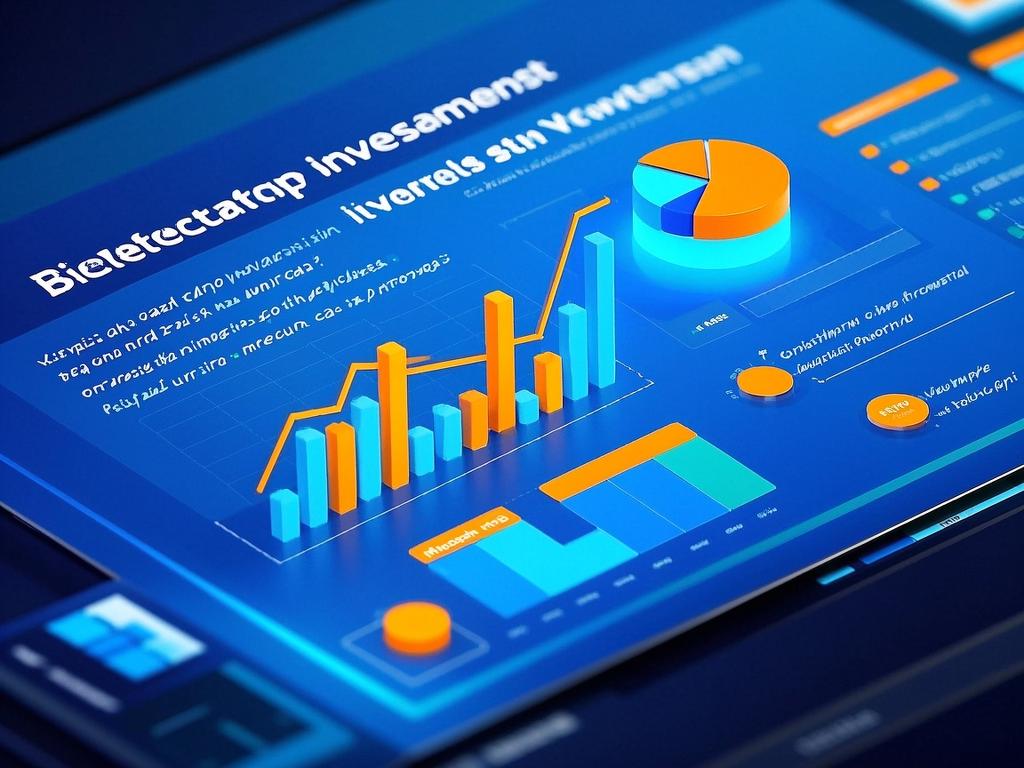
# Investing in the Future of Biotech Startups: Trends, Opportunities, and Risks
In the ever-evolving landscape of innovation, biotech startups are emerging as the vanguards of a new era. These companies hold the promise of revolutionizing healthcare, agriculture, and environmental sustainability. As a financial expert, I'm here to take you on a thrilling ride through the trends, opportunities, and risks in investing in biotech startups.
## The Rise of Biotech Startups
Biotech startups have witnessed an unprecedented boom in recent years. According to a report by CB Insights, the global biotech startup funding reached a staggering $[X] billion in [Year], a [X]% increase from the previous year. This surge is fueled by several factors, including advancements in gene editing technologies like CRISPR-Cas9, the growing demand for personalized medicine, and the increasing focus on solving global health challenges.
One of the most exciting trends in biotech is the development of gene therapies. These treatments have the potential to cure genetic diseases at their root, offering hope to patients who have long been without effective options. For example, companies like [Company Name] are making significant progress in treating rare genetic disorders, and early clinical trials have shown promising results.
## Opportunities Galore
The biotech sector presents a plethora of investment opportunities. From drug discovery and development to agricultural biotechnology, there are numerous areas ripe for innovation.
**Drug Discovery and Development**: The search for new drugs is a never-ending battle against diseases. Biotech startups are at the forefront of this fight, using cutting-edge technologies to identify novel drug targets and develop innovative therapies. With the increasing prevalence of chronic diseases and the aging population, the demand for new drugs is higher than ever. Investing in biotech companies focused on drug discovery could yield substantial returns in the long run.
**Agricultural Biotechnology**: As the global population continues to grow, ensuring food security becomes paramount. Biotech startups are developing genetically modified crops that are more resistant to pests, diseases, and environmental stressors. These advancements have the potential to increase crop yields, reduce the use of pesticides and fertilizers, and ultimately feed a growing world population. For instance, [Company Name]'s genetically engineered seeds have shown remarkable performance in improving crop productivity in challenging environments.
**Cell and Gene Therapy**: This field is revolutionizing the treatment of cancer, autoimmune diseases, and other serious illnesses. Biotech startups are developing innovative cell and gene therapies that target the underlying causes of diseases rather than just treating the symptoms. The potential of these therapies is enormous, and early investors stand to benefit handsomely if successful products reach the market.
## Risks: Navigating the Storm
However, investing in biotech startups is not without its risks. The biotech industry is highly complex and regulated, and the path from research to market approval is fraught with challenges.
**Regulatory Hurdles**: Getting a biotech product approved by regulatory authorities such as the FDA can be a long and costly process. Delays in approval can significantly impact a company's financial performance and the timeline for investors to realize returns. For example, [Company Name] faced significant regulatory setbacks, which caused its stock price to plummet and investors to lose confidence.
**Technological Uncertainty**: The biotech field is constantly evolving, and new technologies may render existing research and development efforts obsolete. Startups need to stay at the cutting edge of innovation to remain competitive, but this also exposes them to the risk of technological failure. A single breakthrough in a competing technology could disrupt an entire company's business model.
**Clinical Trial Risks**: Conducting clinical trials is a crucial step in bringing a biotech product to market. However, these trials are expensive, time-consuming, and subject to a high degree of uncertainty. There is a risk that a product may not demonstrate efficacy or safety in clinical trials, leading to the failure of the development program and significant losses for investors.
## The Art of Investing in Biotech Startups
So, how can investors navigate these trends, opportunities, and risks? Here are some key tips:
**Do Your Homework**: Thoroughly research the biotech startup you're considering investing in. Understand its technology, market potential, competitive landscape, and management team. Look for companies with a clear vision, a strong scientific foundation, and a proven track record in the industry.
**Diversify Your Portfolio**: Don't put all your eggs in one basket. Invest in a diversified portfolio of biotech startups across different sectors and stages of development. This will help mitigate the risk of any single company's failure and increase your chances of achieving positive returns.
**Stay Informed**: Keep abreast of the latest developments in the biotech industry. Attend conferences, read industry reports, and follow thought leaders in the field. This will give you valuable insights into emerging trends and help you make informed investment decisions.
**Be Patient**: Investing in biotech startups is a long-term game. It takes time for these companies to develop their products, conduct clinical trials, and achieve market success. Don't expect immediate returns, and be prepared to hold your investments for the long haul.
In conclusion, investing in the future of biotech startups is both exciting and challenging. The trends are favorable, and the opportunities are abundant, but so are the risks. By doing your due diligence, diversifying your portfolio, staying informed, and being patient, you can position yourself to capitalize on the potential of this dynamic industry. So, are you ready to take the plunge and invest in the next big thing in biotech? The future awaits!

